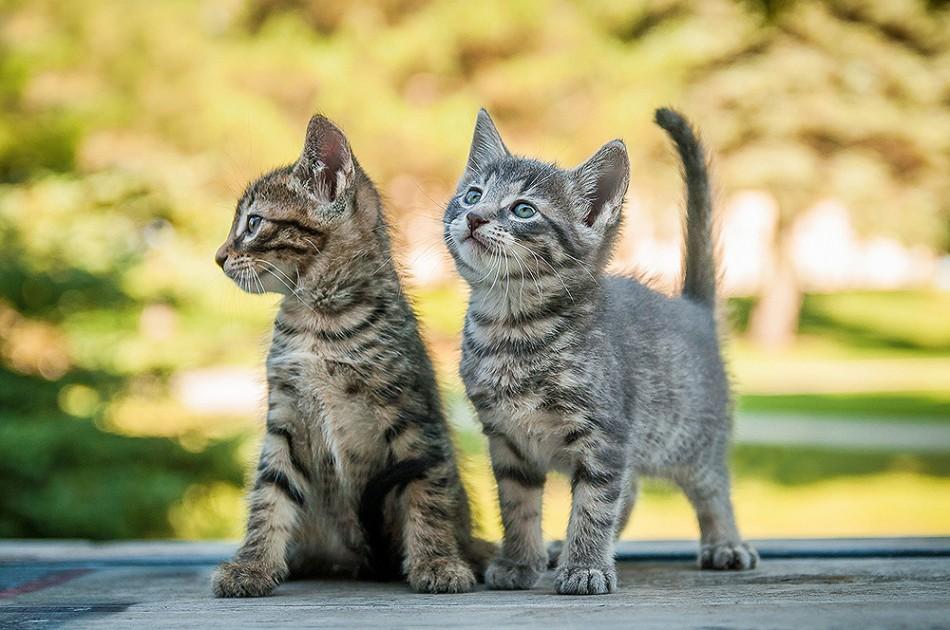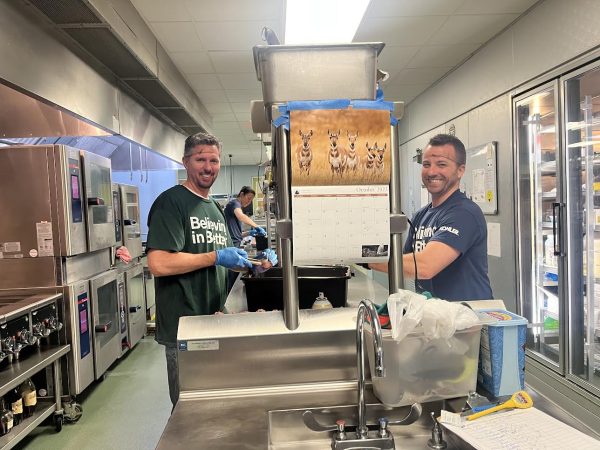Lakeland Campus ‘littered’ with feral cats and kittens
A local animal welfare organization has helped with the sterilization and vaccination of these young kitties.
April 22, 2015
By Davida Marthenze
Staff reporter
Of all the students who attend Lakeland College, 70 percent live on campus. However, this number excludes some very unusual on-campus residents: a collection of feral cats that roam the grounds.
When the cats first appeared on campus is uncertain, but they have been spotted making homes in various areas for years.
According to Rob Sizemore, campus chaplain and assistant professor of religion, he frequently sees some of them outside his office window.
“There are two black ones, one disabled and then sort of a calico-ish one,” said Sizemore.
Though little has been officially determined about the cats, there are some minor regulations surrounding them. For example, students and faculty are strongly discouraged from feeding them, a rule which applies to all wildlife.
“It’s against policy,” said Sizemore. “I think we’re not supposed to feed any of the wild animals, which makes sense because there’s the potential then for spreading disease or gathering more of them.”
Disease and rapid reproduction among the cats are both issues.
These issues have been confronted by a local animal welfare organization in the form of sterilization and vaccination procedures, which were administered to many feral cats on campus a few years back.
There have been no reports of cats showing signs of disease and the number of cats has remained at a comfortable level. In fact, their presence is appreciated by some on campus.
“I like seeing them around here,” said Ann Penke, director of library services. “In past years, sometimes there have been baby kittens in the window sill here in the library, but they blocked off the entrance because every once in a while a cat would die and we couldn’t get to it. It wasn’t a good place for the cats to be, so we tried to discourage them from being there.”
Penke also notes that the air conditioner near the library door has been known to host one particular cat who likes to lie on top of it and sun itself.
“It was a little bit tame, so it might follow you up the hill, not all the way to Old Main, but then at a certain point it would walk back,” said Penke.
Most of the cats, however, are much less prone to approaching humans.
Sizemore and Penke also appreciate the cats for the free pest control services they provide.
“I like them catching mice because every once in a while we get mice here in the library, so if they’re catching some outside, that’s a good thing. It’s one less mouse that’s trying to get into a building here on campus,” said Penke.
“They’re catching mice and doing good things, so that’s the good side of having them around,” said Sizemore. “They kind of patrol the perimeter where the weeds are by the lake, and they’ll just slowly walk and eventually they’ll pounce on something, and then—dinnertime! And then they go back to just patrolling the weeds, and it’s kind of funny to watch.”











